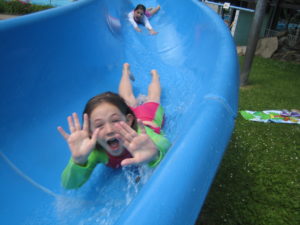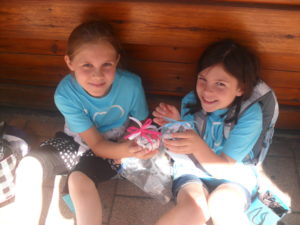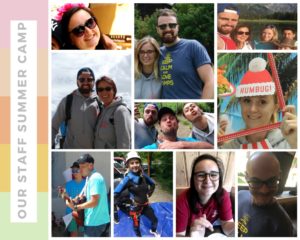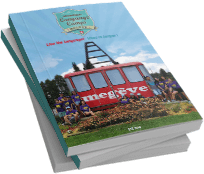Tag: camp
Language Summer Camp in Megève: 4 Convincing Reasons to Send Your Child
Introduction
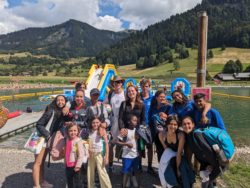
Reason 1: Immersive Language Learning Experience
One of the most effective methods for learning a new language is through immersion, and that’s exactly what our Megève summer camp offers. Immersion in a language occurs when learners are placed in an environment where they must use the new language to communicate for most of their day. This method accelerates language acquisition as it mimics the natural way children learn their mother tongue.
Our camp curriculum is designed by expert linguists and seasoned educators, ensuring that each child receives personalized attention suited to their learning pace. Whether your child is a beginner or looking to enhance their fluency, the diverse linguistic setting at Megève provides an ideal backdrop. From interactive language classes in the morning to practical conversational practice with peers throughout the day, the exposure is continuous and multifaceted.
Further enriching this experience are the stories from former campers who recount their rapid progress and increased confidence in using the new language. Such testimonials underscore the effectiveness of our immersive approach.
 Reason 2: Unique Cultural Exposure
Reason 2: Unique Cultural Exposure
Nestled in the French Alps, Megève is a hub of rich cultural heritage. Our summer camp leverages this unique location to provide children with firsthand experience of French culture. Cultural learning is intertwined with language instruction, with scheduled trips to local museums, historical sites, and participation in traditional festivals and markets.
These activities are not only entertaining but also educational, providing children with context to the language they are learning. This method of cultural immersion ensures that language learning at the Megève camp is not confined to textbooks but enriched with real-world experiences and interactions.
Reason 3: Development of Life-Long Skills
Beyond the linguistic benefits, our french summer camp in Megève is a breeding ground for a variety of life-long skills that are essential in today’s world. Campers develop independence as they navigate new experiences away from home, learn to manage their time and responsibilities, and make decisions in a supportive yet challenging environment.
Social skills are particularly enhanced through daily interactions and group activities. Children learn to communicate across language barriers, work in teams, and build friendships with peers from around the world, fostering a global mindset. Additionally, the camp’s diverse activities encourage adaptability and problem-solving, skills that are valuable in academic and personal settings.
Educators and psychologists support the notion that such immersive environments significantly contribute to overall child development. Engaging in a structured yet flexible schedule allows children to explore their interests in a safe setting, promoting personal growth and self-confidence.
 Reason 4: Fun and Safe Environment
Reason 4: Fun and Safe Environment
While the educational benefits are paramount, the enjoyment of the campers is equally important to us. Megève’s summer camp is designed to be the perfect blend of learning and fun. Our schedule includes a variety of recreational activities such as hiking, swimming, and arts and crafts, ensuring that every child finds something they enjoy. These activities not only serve as a break from learning but also help in applying the language in relaxed settings, making language practice enjoyable and stress-free.
Safety is our top priority. The camp is staffed by professionals who are trained to provide a secure and supportive environment for all children. Comprehensive safety protocols are in place, including 24/7 on-site medical support and regular updates to parents, ensuring peace of mind for families while their children enjoy their summer adventure.
Parents of previous camp attendees frequently express their satisfaction with the secure and nurturing environment at the camp, noting that their children are eager to return year after year. Their testimonials highlight the camp’s success in combining effective learning with a fun and safe summer experience.
Conclusion
Sending your child to our language summer camp in Megève is not just an investment in their language skills, but in their personal growth and future potential. The immersive language learning, coupled with cultural exposure, development of life-long skills, and a fun, safe environment, makes Megève an ideal choice for a summer that’s both enriching and enjoyable. The experiences and skills gained at the camp will serve your child well beyond the summer, laying a foundation for success in whatever path they choose to pursue.
A Summer Camp that foster independence
Unlocking Independence: The Transformative Journey at International Language Camp
At “International Language Camp” in the picturesque town of Megève, nestled in the heart of the French Alps, a remarkable journey of independence awaits young campers. This unique summer camp experience not only offers the opportunity to learn and master languages but also fosters personal growth, self-reliance, and the development of essential life skills.
A Multicultural Melting Pot
One of the standout features of International Language Camp is its diverse and inclusive environment. Children from across the globe come together, creating a rich tapestry of cultures and backgrounds. This multicultural setting exposes campers to a world of perspectives, encouraging them to step out of their comfort zones and embrace the unfamiliar.
Freedom to Explore
At International Language Camps, children are encouraged to explore their interests and passions. They have the freedom to choose from a wide range of activities, allowing them to follow their curiosity and discover new talents. This freedom of choice empowers campers to make decisions independently and take ownership of their experiences.
Adventures Beyond Comfort Zones
The camp offers a multitude of outdoor adventures, from hiking in the breathtaking Alpine landscapes to engaging in thrilling water sports. These activities push campers to step out of their comfort zones, overcome challenges, and gain confidence in their abilities. Conquering new terrains fosters a sense of self-reliance that stays with them long after camp ends.
Language Learning as a Catalyst
Language acquisition is at the core of International Language Camp’s mission. Campers not only learn to communicate effectively in French or English but also develop the confidence to use these languages in real-world scenarios. This linguistic competence further enhances their independence, as they can navigate global environments with ease.
Cultural Exchange and Empathy
Interacting with peers from different backgrounds encourages campers to develop empathy and respect for diverse perspectives. They learn to appreciate the value of collaboration and cooperation, skills that are crucial for both personal and professional growth.
Life Skills for the Future
The independence gained at International Language Camps extends beyond the campfire. Campers return home equipped with enhanced decision-making skills, self-motivation, and the courage to explore the world. These attributes prepare them to navigate the complexities of adulthood with confidence.
In conclusion, International Language Camps in Megève is not merely a language program but a transformative journey towards independence. Campers emerge from this enriching experience with a newfound sense of self, a broader worldview, and the life skills necessary to thrive in an ever-changing world. Join us at International Language Camp, where independence is more than a concept; it’s a way of life.
The 14 most asked questions about camps
1. What is camp?
Camp, as a concept, can be a very difficult thing to define.
Each camp is developed to provide a unique experience for children and teens of different backgrounds, skill sets and interests. They offer new experiences, activities, and friendships, and promote personal development.
Fun is part of it, as is challenge. Some of the challenges are physical, others social. While camp is strongly associated with the summer season—something that is due to the fact that the camp concept began as a summer program for young people—today’s camp sessions are offered throughout the course of the year. You can have a look at our winter camps!
What the best camps share is their ability to provide opportunities for kids to grow around a set of common interests and abilities, and to gain a sense of their talents within a setting of shared values. Peer mentorship often takes a front seat in the camp experience, with young people working to gain the trust of others. Success is not exclusively personal, but also social. It is less about “I did it!” and more about “we did it!”
Whether it is a day camp or an overnight camp, it is an opportunity for kids to explore being active in creative ways that appeal to who they are and in ways that are kid-driven, rather than adult-driven. They provide stimulating, purposeful play while encouraging creativity and social engagement. When at camp, kids learn to set their own boundaries, to develop in an environment that is not necessarily focused on a competitive end, to interact with one another, and to be involved in an active way with their peers.
2. Is summer camp worth the investment?
Camp offers adventure, personal growth challenges, and social opportunities that belie any dollar figure attached to the experience. Many campers do not appreciate the true value of camp until some point in the future when a lesson in decisiveness, grit, or persistence becomes truly apparent. For others, camp presents experiences, and affords personal revelations that are immediately invaluable. The stories of camp alumni’s enthusiasm implies that yes, it is worth it, and no, you can’t put a price on what you gain.
Take a fuller look at how summer camp is worth it
3. What’s So Great About Camp?
We have a lot of testimonials of old campers who say that they met their best friends for life in summer camps because when you are at camp, you meet people who get to know you better than anyone from school, and you build strong relationships with the people who make you the happiest. The amazing thing about camp is that the people and the environment really open you up to be who you are and make you feel accepted and loved for it. Leaving camp always comes with a lot of tears because it has such an amazing impact on people.
4. How Long Does Summer Camp Last?
Most of the campers enrol for 2-3 weeks. Some parents prefer a week or two, specially for the younger campers. For older campers, parents choose longer sessions up to a 5 week program. But, again, it is a good question, one that you should think about whenever considering a program: how long are the sessions?
5. What’s the Difference Between Day and Overnight?
At overnight camps, kids arrive and stay on site, in groups of similar age, each presided over by counsellors who live with them. They may experience homesickness, though, even then, the counsellors know how to support the child, and by the end of the session, they will have a sense of having tackled even that challenge successfully.
At day camps, campers only attend during the day: they arrive in the morning and go home at night. Day campers are able to focus more intensively on a specific passion along with peers who share that passion, mentored by counsellors who are experts in their respective fields.
6. What do Specialty Camps Offer?
All great camps share those attributes: getting kids out of their comfort zones, placing them in settings in which their personal interests and talents are valued.
We believe sincerely in the educational, social and recreational values of each camp.Our programs are specialised in languages and sports. Children come from all over the world to learn French or English and practise different sports .
7. How do I know if my child is ready for overnight camp?
We accept kids at six years of age, though not all children are ready at that age to spend a week or more away from home and family.
There are factors to consider when deciding if your child is ready for the overnight experience.
The comfort with the concept. Is your child comfortable having sleepovers? You can set up sleepovers and see how the child reacts. If your child is still nervous or uncomfortable with the prospect of spending the night away from home, overnight camp probably isn’t in the cards just yet.
And then, factor is: does your child want to go? Gauge their interest in the various options, and let them get a feel for what this particular camp is all about. If kids are involved in the process, and are excited at what they will be doing at camp, they’ll be much more comfortable when they get there.
And, yes, parents tend to be overly cautious. Most children are much more ready to go to camp than their parents are to let them go. Kids are typically ready for day or overnight camp when they start to get involved in activities outside the home—playing hockey or basketball, or starting to generate interests away from the family.
8.Is Camp Safe?
A US national study conducted at camps showed that rates of injury through camp experience were significantly lower than those of most organized sports.
Addressing everything from physical safety to emotional well-being, a good director is committed to ensuring each child has a positive camp experience. These days there is a greater focus on anxiety and nervousness. Open communication is often the best solution, and it starts by letting parents and campers know exactly what to expect, as every camp director does. Any concern that’s top of mind for parents is also top of mind for camp directors.Camps conduct criminal record checks for all new staff members.
When our kids take part in canoeing, kayaking, climbing, or swimming, they’re supervised by staff who are certified in those areas.
Further, camps are required to have strict, well-enforced policies around food cleanliness and safety, allergies and dietary needs, water purification, camper health and wellness, medical services, and program safety.
Peace of mind should be part of the overall camp experience as well, and if you don’t have it, then feel free to approach the camp staff or administration. Truly, they’ll be happy you asked.
Camps, as with any professional environment, have a typical and clear administrative hierarchy. At the top are the camp directors, who are people for whom camping is both a full-time career as well as a personal passion. Most directors have extensive experience at camp, having grown up through the camp experience themselves. Many have academic credentials. Others have a background in outdoor recreation.
As with principals within a school environment, directors set the tone at camp. Everything that happens on the camp property is their responsibility. Their prime concern is the safety, health, and happiness of the campers. Before delegating this responsibility, they must hire mature, experienced, skilled, and competent individuals and then train them fully in all aspects of safety and risk management. Throughout the season, they support, supervise, and evaluate staff to ensure the well-being of every individual on the camp property.
9. Will the proposed activities really be useful to them?
In all camps, traditional or innovative, activities/events/ facilities don’t exist for themselves, or even necessarily to promote the skill sets they seem to represent. Isn’t looking forward to a career in making friendship bracelets. Even the sports, at least outside of specialty camps, aren’t conducted with the elite athlete in mind. Instead, as camp directors will tell you, the programming is a tool used to get to the hearts and minds of the kids, to help them to grow together, develop, and gain confidence in who they are and what they can do. From public speaking programs to sailing the high seas on a tall ship, it’s not the activity so much as what is done with it and what it is employed to accomplish. Foremost is to give young people a place where they can share their passions and knowledge, where they will feel a unique sense of belonging. Once they acclimate and get used to the idea.
10. How Do I Make Friends at Camp?
 It is a common question that is not voiced as often as it’s felt. Going to camp for the first time can require a bit of courage, and kids can be anxious about an upcoming camp experience. If a young person were to ask, this is what we’d say:
It is a common question that is not voiced as often as it’s felt. Going to camp for the first time can require a bit of courage, and kids can be anxious about an upcoming camp experience. If a young person were to ask, this is what we’d say:
- Everyone is in the same boat. The other campers are as anxious about fitting in as you are.
- say hi. Everyone has a bit of trouble putting themselves out there. If you say hi, whoever you say it to will be very happy you did.
- be yourself. Yes, this is what everyone says. But they say it because it’s true. Just be who you are, rather than trying to be what you think other people are looking for. They want to know you, and to know that you’re interested in knowing them.
- listen as much as you talk. Put yourself forward, but then let other people put themselves forward, too.
- go with the flow. There are lots of new experiences. Give everything a try. If you don’t like it, well, then you’ll know.
- have fun. Know that as difficult or strange as the first day might be, you are actually going to have fun. You’ll probably even cry when camp ends.
11. What’s A Typical Day at Camp Like?
The morning is dedicated to the language lessons and some games between the work times. In the afternoon, we organise a lot of activities such swimming , a big game, ice skating and many others. The list can be very long! After this fun time, campers do some others little activities, maybe an extra activity that you had taken for your child. It can be a tennis lesson or an individual language lesson (we teach 10 different languages). Lunch is at the restaurant, and they really appreciate to be served delicious french cuisine. Evening parties are organised by counsellors or professionals.
12. How Do I Register?
These days the registration process is quite simple. You can register and pay online. Keep in mind the registration timeline, though. You can register right up until the time camp starts but since some camps fill up fast, you’ll want to stay on top of things.
The cost of an overnight camp session is higher than a day camp session of similar duration, given the costs associated with accommodation and meals.
Our camp fees include:
- Access to the camp’s facilities
- Accommodation
- Supervision by trained staff members
There may be extra services, which are not included in the price:
- Optional programs and activities
- Supplies
- Equipment
- Camp merchandise, clothes, and snacks, which may be available at tuck shops
13. What Should I Be Asking The Camp Director?
You should absolutely approach the camp director, if only because they are great people, and any interaction will be welcome and illuminating. No question is foolish or too direct when you are dealing with the well-being and safety of your child.
What are your qualifications and experience?
Without exception, you’ll be impressed by the experience that they bring to the role. That said, pay as much attention to how they respond as to what they say. This is the person you will need to trust most with the care of your child. They should present themselves with confidence, professionalism, and empathy. Most do that and more.
What written policies are practised at camp to ensure camper safety?
In pre-camp training, staff learn the written safety guidelines for every activity and program and practise the emergency procedures for fire, waterfront emergency, severe weather, or a missing camper.
What will you do on the first day to make my child feel like they have an important place at camp?
Those first moments are crucial to a camper’s enjoyment of camp. The best case is one in which campers begin immediately: playing games and learning each other’s names.
What do you love about your camp?
Whatever camp directors say should match with your values as a family. Their experience and enthusiasm for working with young people should shine as well. If not, keep looking.
Five Reasons Great Parents Send Their Kids to Camp
My shy, quiet nine-year-old went to camp not knowing a soul. Two weeks later, she came home transformed. She blossomed. She made friends, learned a multitude of activities, felt safe, loved, confident, and happy — really, really happy. As hard as it was on me, it was all worth it for her. It was the single best thing I have ever done for her.
-First-time camp parent
Many parents won’t allow their child to go on a school field trip or school outdoor education trip unless they are chaperoning, so it’s no surprise that those same parents may find the idea of sending their child to sleep-away camp incomprehensible. As a camp parent, you may get a shocked response from one of these “non-camp” parents. They may ask you things like, “How can you stand having your child away from you for so long?” or, “How will she survive without you?” or, “Isn’t he too young to go to camp alone?” Or, they may comment, “I would never send my child away to camp for two weeks.” In all of these negative responses, there is an underlying criticism of your parenting.
If you find yourself in the awkward position of being criticized for the decision to send your young child to camp, you may want some extra “ammunition” to defend your decision. And, if you are never in the position of defending your camp decision, let this list remind you about just a few of the many reasons why you are being a great parent by sending your child to camp!
At camp this summer, your child will…
DEVELOP INDEPENDENCE
Going to camp has made me even more independent and a much better people-person. I am able to go confidently up to someone and introduce myself, or hang out with someone new because of my time at camp. -Five year camper
You are giving your child the opportunity to live and thrive without being with you and under your constant scrutiny. The growth in confidence and independence happen at camp BECAUSE you are not there. Read more about why camp experiences help kids develop independence in Parking Your Helicopter.
EXPERIENCE OUTDOOR CHILDHOOD FUN & ADVENTURE
You are giving your child the gift of magical childhood memories – dirt, adventure, story, and joke-filled days and nights spent with friends outdoors, under the stars, and around the campfire. These childhood memories will last forever. And, as Michael Thompson, PhD. So eloquently states, “Our best childhood memories do not include adults.”
RELAX
You are giving your child a break from the pressures and stress of competitive sports, school, and you. Forgive me if that offends, but I, too, am a well-meaning but over-involved parent who provides just a bit too much advice, feedback, and guidance to my children. Our kids need a break from our well-intentioned involvement in their lives.
GET UNPLUGGED
Camp has helped me appreciate nature and the outdoors a lot more than I think I would have if I didn’t go. I can go without my phone or connection to social media awhile, because camp has shown me that amazing stuff happens when you put your phone down and have a nice conversation with someone.
-five year camper
You are giving your child the chance to unplug and connect face-to-face with other kids and positive young adult role models. Getting unplugged is one of my favorite topics, so you can read more at Five Reasons to Unplug and Get Unplugged to learn about the many benefits of taking a break from technology.
BECOME BETTER AT MAKING AND KEEPING FRIENDS
I feel like I have become a kinder person and am better at making friends because of camp.
-third year camper
The bonding and friendships that happen at camp are different from those that occur at school and on sports teams. The intensity of living together and experiencing life together, without distractions, creates the ideal setting to form life-long friendships and really get to know people well. Read more about camp friendships in Friends: Finding Gold in a Plastic Era.
So, if people ever question your decision to send your young child to a traditional, longer camp stay this summer, let them know that it’s hard for you to let your child go, but that you’re giving your child a gift that will have more impact than any material item you’ve ever given.
Want to read more about the many benefits of camp?
Why Kids Flourish at Camp
“The Dark Side of Parental Devotion: How Camp Can Let the Sun Shine” By Dr. Wendy Mogel (author of The Blessing of a Skinned Knee)
The Natural Gifts of Camp Read about the benefits of kids being in nature at camp in an article written by Richard Louv, author of Last Child in the Woods: Saving our Children from Nature Deficit Disorder.
Role Model Relationships: Making healthy human connections By Peg L. Smith, CEO, American Camp Association
Coping with First-Time Camp Experiences “As parents, recognizing that you and your child are growing and learning on a journey together is key to adequately preparing yourself and your child for any type of separation, including going to camp for the first time.”
Children Inside and Out Information and reassurance for first-year camp parents by camp expert Bob Ditter.
What do we do when we’re not at camp?
We love camp, it’s our time to get away from our ‘real life’ and enjoy our summer with the children from all over the world. Unfortunately we have to get back to our real lives at the beginning of September for most of us, so what do we do?
Well, as Camp Director, my summer is taken up with organizing, prioritizing, dealing with all issues and problems and maybe a bit of fun at times! After a well-earned break, I’m back working for our Language School as Director of Studies with my main priority being the Cambridge Assessment English exams where I’m the main coordinator and trainer of local examiners. I also do a bit of teaching to children from as young as 5 up to adults needing English for work.
As for the rest of the team, Brandon works with me all year round and quite a few of the counselors are continuing their studies: Maud is in Lyon doing a Masters in Law, Sophie is in the Netherlands studying International Business Management, Simon is studying in Geneva to become a Pharmacist, Diana is finishing a degree in Languages. Others are working: Dylan is teaching English in Spain and Jonathan is teaching French in Peru. As for Tom, he has just passed his diploma to teach English as a Foreign Language and is contemplating his next move!
See you in the summer where we can all leave our ‘real lives’ at home.
 Reason 2: Unique Cultural Exposure
Reason 2: Unique Cultural Exposure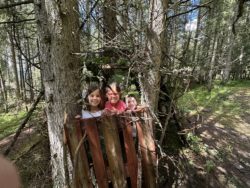 Reason 4: Fun and Safe Environment
Reason 4: Fun and Safe Environment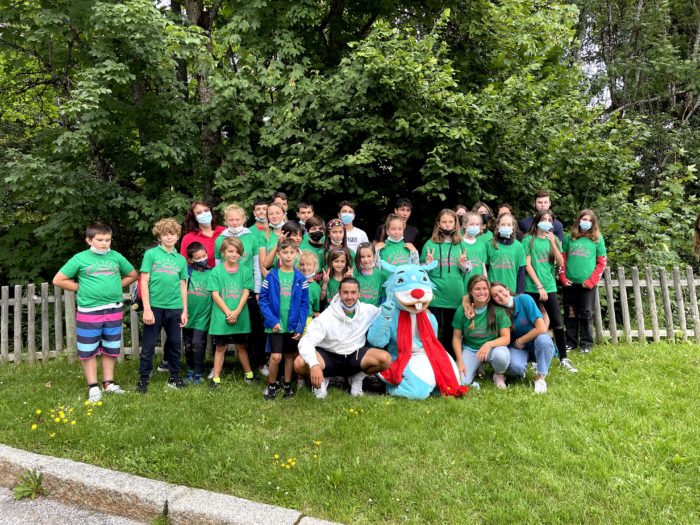
 It is a common question that is not voiced as often as it’s felt. Going to camp for the first time can require a bit of courage, and kids can be anxious about an upcoming camp experience. If a young person were to ask, this is what we’d say:
It is a common question that is not voiced as often as it’s felt. Going to camp for the first time can require a bit of courage, and kids can be anxious about an upcoming camp experience. If a young person were to ask, this is what we’d say: